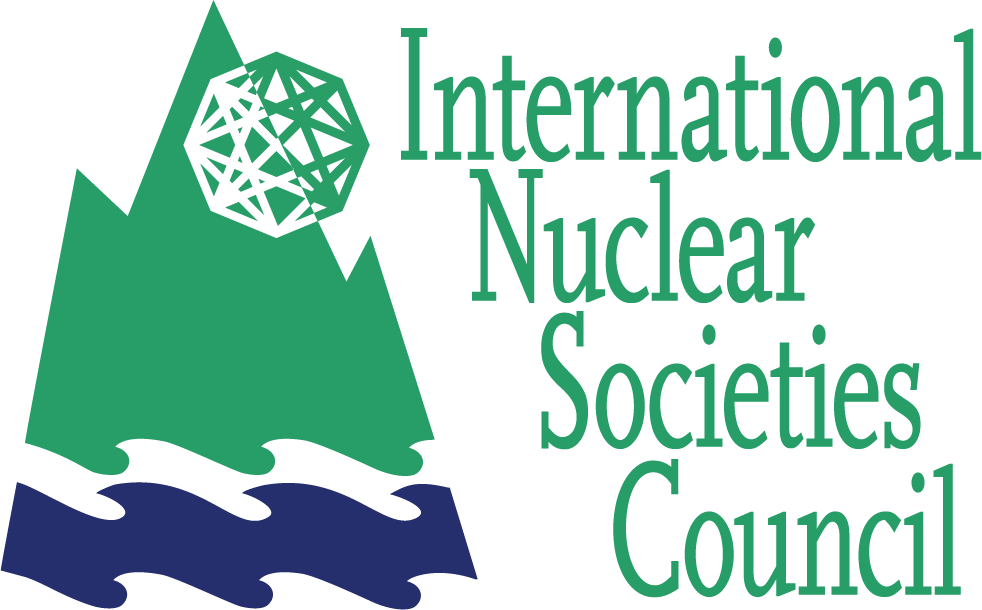INTERNATIONAL NUCLEAR SOCIETIES COUNCIL
NUCLEAR ENERGY IN THE 21st CENTURY
(Distributed at the United Nations Conference on Environment and Development, Rio de Janeiro, June 1992)
The International Nuclear Societies Council (INSC) is composed of learned nuclear societies working with global co-operation in the peaceful uses of nuclear science and technology, for the benefit of mankind in a manner in which the public health and safety, and environmental protection, are paramount.
In 1990, learned nuclear societies of four geographical regions of the world, namely:
North America
Central and South America
Europe
East Asia
as well as an at-large region, founded INSC.
The member societies of INSC today have a total of more than 40,000 members who are scientists, engineers, technicians, and specialists with a major interest in the development of peaceful applications of nuclear science and technology. The best expression to date of their opinion about nuclear energy in the 21st century is hereby appended:
A SUSTAINABLE ENERGY RESOURCE
There is a growing global consensus on the need for sustainable development. Adequate energy supply is critical for emerging economies to develop and for industrialized economies to support the legitimate needs of their societies. Energy in the form of electric power is essential to improve efficiency, develop conservation technologies, recover, recycle and properly dispose of wastes, and minimize environmental pollution. Nuclear energy can play a vitally needed role in meeting future electricity needs.
SAFETY AND ENVIRONMENTAL ASSESSMENT
Electricity generated from nuclear fission energy has been evaluated in more depth than any other energy source. Licensed nuclear power plants, designed to established standards and operated by qualified personnel, have amassed a safety record unmatched by any alternative energy source. The accident at Chernobyl was indeed serious. Important safety features required by Western safety standards, including a pressure-resistant containment building, are not present in the Chernobyl-type plants. All new designs must meet stringent safety standards, and international efforts are proving successful in instilling a safety culture and management controls to all operating plants.
With the exception of those regions where more hydroelectric power is available, nuclear energy is the only large-scale source of base-load power that produces no sulfur oxides, no acid rain and no carbon dioxide emissions. It does produce radioactive wastes. These are sufficiently concentrated that it is worth the effort and cost to confine them and dispose of them in permanent repositories, and thereby keep them out of the environment forever.
Wastes already exist from more than thirty years of commercial nuclear electricity production. The technology for safe disposal is well understood, and is being pursued in a number of nations. High-level wastes are concentrated, carefully handled, and are being stored safely. The major nuclear nations have plans for permanent disposal facilities. It is the obligation of the current generation to dispose of them safely and permanently. The proper test for any repository is safety, and not its location relative to state or national borders.
A PART OF THE MIX FOR BASE-LOAD ELECTRICITY PRODUCTION
No claims are made that nuclear power is the only answer to electricity needs. Nuclear plants provide base-load power, day and night, while peak loads can be met by natural gas and even oil. Alternative energy sources: solar, wind, geothermal and hydro, should be used whenever they are available. Choices for future plants need to be based not only on the cost of production, but also on environmental impacts. In some nations, attempts are being made to estimate and internalize environmental costs into the calculated costs of production.
Energy conservation programs can lower demand growth rates, and delay for a few years perhaps, but not eliminate, the need for new power plants.
The record around the world shows that nuclear plants can compete effectively with coal and other alternative sources. They provide diversity of supply, and in some nations are of critical importance in reducing the need for imported oil and liquified natural gas. Reliability records are improving each year. New plants are currently under construction in France, Japan, China, Korea, Brazil and Romania.
Uranium resources are abundant and fuel supplies are economical at this time. Recycling of plutonium will help to keep nuclear fuel prices down and extend the natural uranium resource well into the 21st century. Ultimately, breeder reactors will be able to produce enough new plutonium to assure sufficient nuclear fuel supply for future centuries.
THE CIVILIAN NUCLEAR POWER FUEL CYCLE AND SAFEGUARDS
The commercial nuclear electric power fuel cycle is not a logical or effective pathway to nuclear weapons. Systems of safeguards under International Atomic Energy Agency (IAEA) agreements have proven successful in assuring that diversion of plutonium has not taken place. Experience has shown that accurate inventories of critical materials can be maintained.
The major weapon states are IAEA signatories and have put their commercial fuel cycles under IAEA safeguards. Most non-weapons states have accepted full-scope safeguards, committing themselves to having no national program to develop nuclear weapons. It is of critical importance to bring the remaining nations into IAEA agreements.
The sad experience with Iraq proves that if a nation is determined to acquire nuclear weapons, it will not depend on the nuclear power fuel cycle. Iraq
